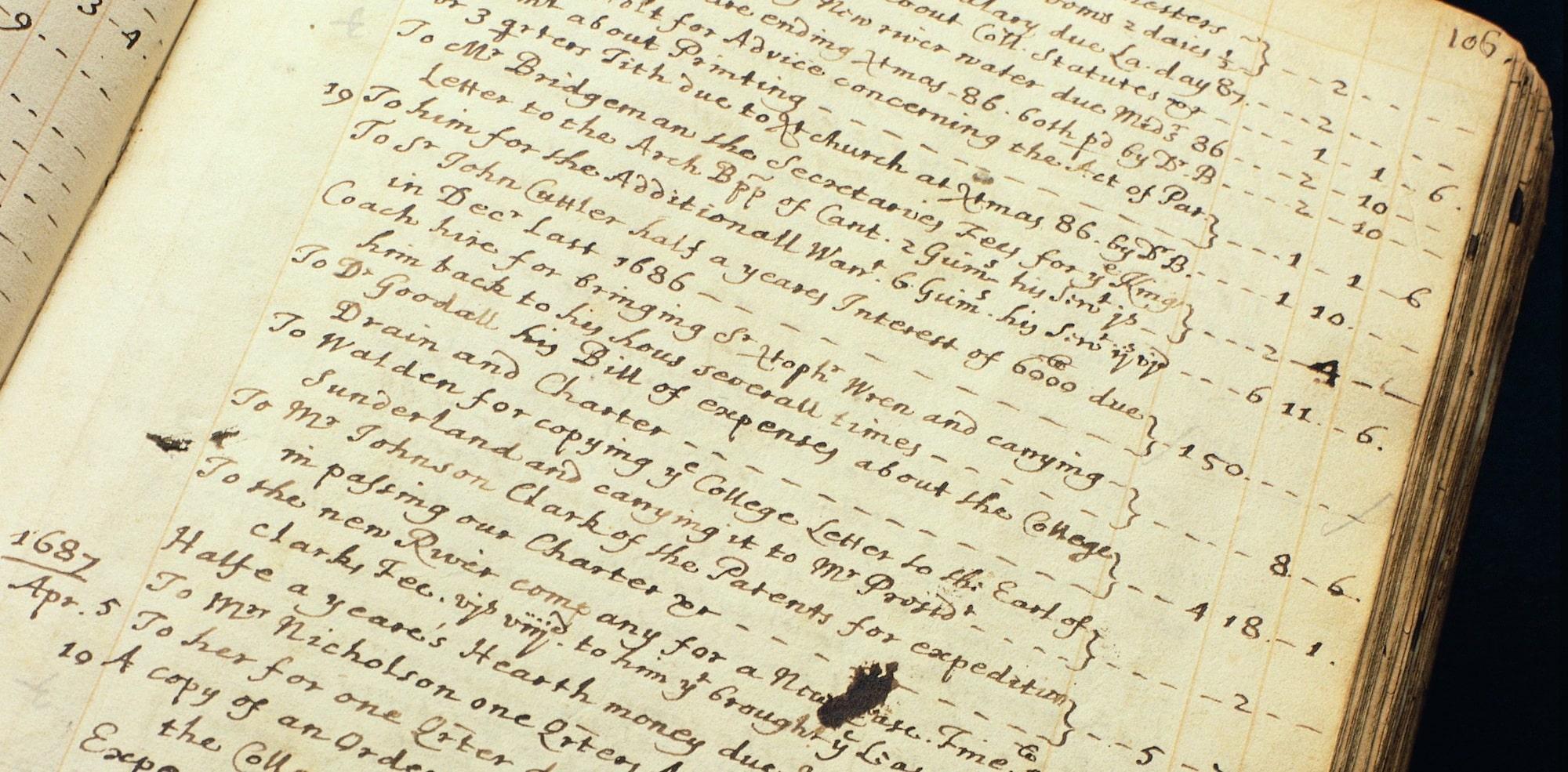The RCP's London home is a spectacular Grade I listed building designed by Denys Lasdun. That makes it the fifth premises that we’ve occupied in London.
The RCP’s third home in Warwick Lane was also a showcase of modern architecture. Robert Hooke designed the building, which opened in 1675. It had an anatomy theatre with a striking octagonal dome; you can see a model of the theatre on display in the RCP today. In the 1680s a brand new library space was added to the building, designed by one of the most prominent architects of the late 17th century.
In 1680 a wealthy patron had left his personal library to the college. The physicians commissioned the famous architect, Sir Christopher Wren, to design a library space for this generous gift. Wren obviously took his work seriously, visiting the premises a number of times, as this 17th-century account book shows.

The ledger entry for 19 February 1686/7 shows that the college paid eight shillings and six pence (over £40 in today’s money) for coach hire, for picking up Wren ‘and carrying him back to his house several times’.
This account book was started in 1664. It contains the very first set of records of the income and expenditure of the College of Physicians, as it was then known. The RCP archives contain the full set of minutes of the meetings of the fellows and details of the business they conducted, right back to 1518 when the college was founded, but this is the first set of records describing the finances. A later entry on the same page shows the fellows spent five shillings every half year for a ‘scavenger’ to clean the streets and take away the rubbish.
Unfortunately, the magnificent library space Wren designed remained behind in Warwick Lane when the college moved out of the City of London in 1825. Times had changed and the elegant building was no longer at an elegant address. The fourth home was in the new Pall Mall East, just off Trafalgar square and the Warwick Lane building was eventually demolished in 1866.
This post is part of Explore Your Archive week, during which archives, and the roles they play in our society and communities, are celebrated. The RCP archives are open to researchers by appointment.
Pamela Forde, archive manager
Read more about the RCP's library, archive, and museum on our blog, and follow @RCPmuseum on Twitter.
